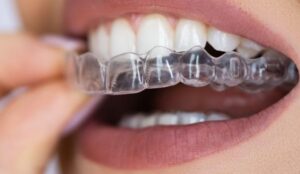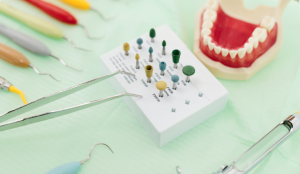If you often wake up with jaw pain, headaches, clicking sounds while chewing or a feeling that your jaw is tired all the time, you might be dealing with TMJ disorder. Many people ignore these early signs until the pain becomes constant. At Dental Krafts, we meet patients every week who feel confused and frustrated …
- Mon - Fri: 8 AM - 5 PM.
- 1806 Professional Dr A, Sacramento, CA 95825










